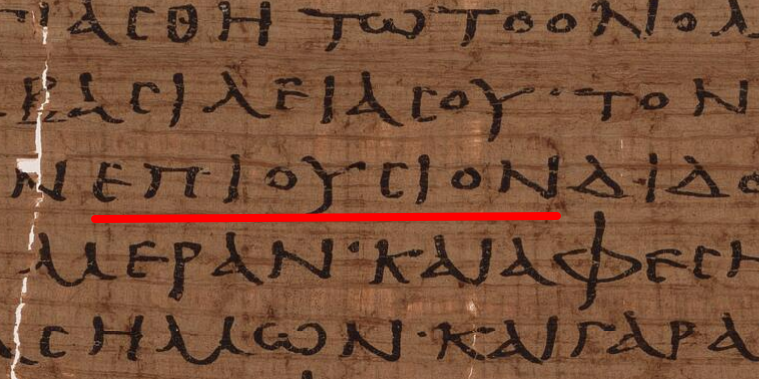the full line being “Give us today our epiousion bread”
Today, most scholars reject the translation of epiousion as meaning daily. The word daily only has a weak connection to any proposed etymologies for epiousion. Moreover, all other instances of “daily” in the English New Testament translate hemera (ἡμέρα, “day”), which does not appear in this usage.[1][2] Because there are several other Greek words based on hemera that mean daily, no reason is apparent to use such an obscure word as epiousion.[4] The daily translation also makes the term redundant, with “this day” already making clear the bread is for the current day.[21]
i don’t think wikipedia mentions this but it has ‘pious’ in the middle



Textual critics are fairly confident that a fair amount of the texts of the New Testament were reliably copied until we get to the first extant manuscripts, and for the stuff that is very obviously messed up, they have a decent set of analytical tools that help them retroject the likeliest original wording. Not perfect, but decent.
And now we have even better scientific tools that allow us to retroject all the miracles, incorrect dates, absurdly inaccurate numbers/measurements, and the authenticity (very foundation) of it’s stories. Proving that it is all fiction.
Reminder: Until the 1800s no Christian believed that the world was older than about 6000. If you went back in time and spoke to literally any Christian at that time and said you were both Christian and believed that the earth was billions of years old they would definitely say that you’re a liar: You’re not a Christian. You would be declared a heretic.